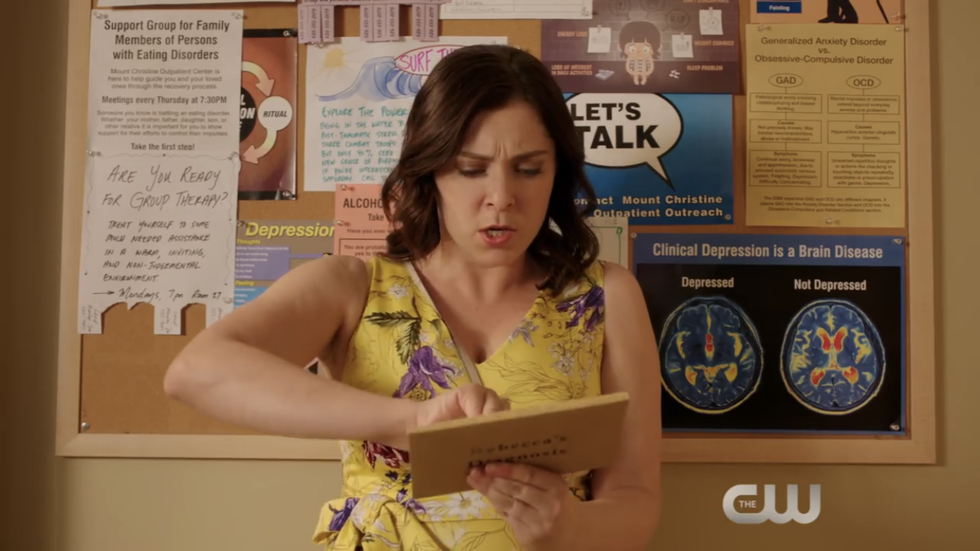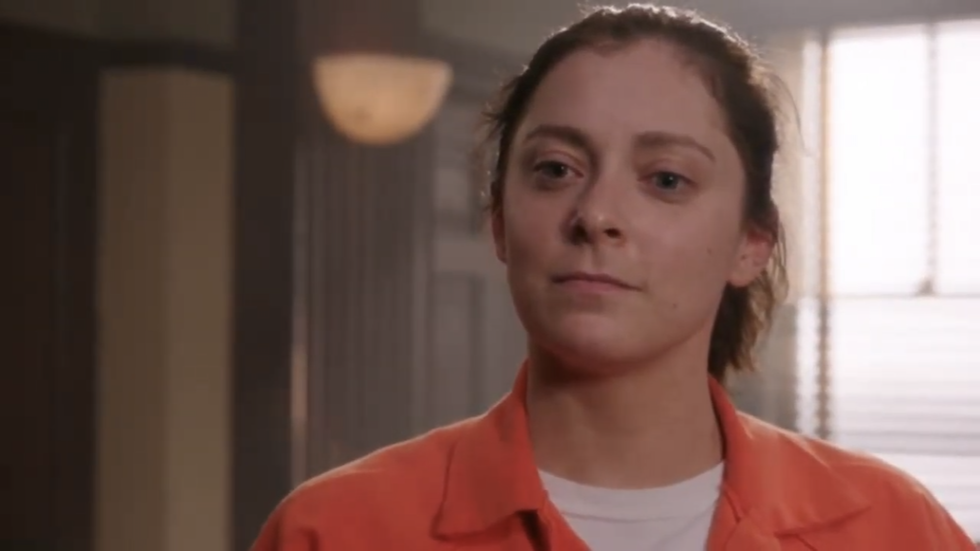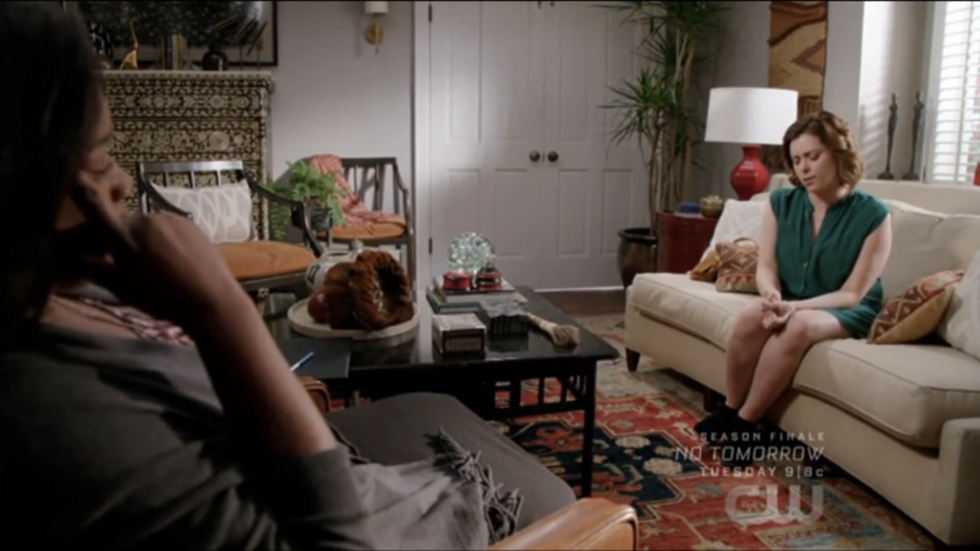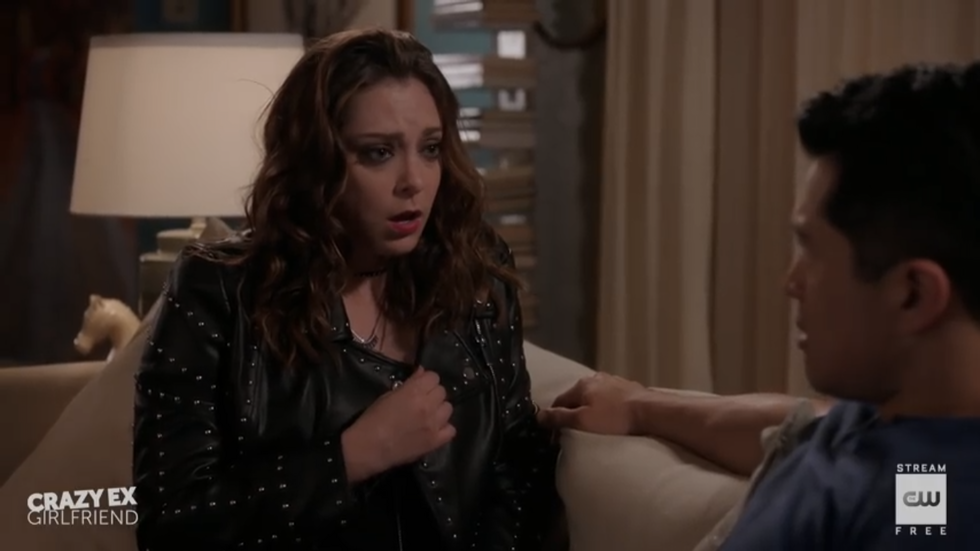When I first saw "Crazy Ex-Girlfriend" in my recommended section of Netflix, I was hesitant to give it a watch. The title called to mind a hated trope of mine - the woman scorned who, after being rejected by a man, resorts to stalking him, destroying his possessions, and threatening women in his life. Despite my reservations, however, I gave the show a chance and discovered that it is a brilliant deconstruction of a romantic comedy told from the perspective of that so-called "crazy" person. I have never seen a television show deal with mental illness in such a realistic, refreshing, and lucrative manner.
Here are just a few of the ways "Crazy Ex-Girlfriend" has transformed how mental illness is portrayed on television.
The main character is diagnosed with a heavily stigmatized disorder

https://www.youtube.com/watch?v=uic_3vlI5BE&t=106s
After a failed suicide attempt in early season 3, Rebecca, our main character, is diagnosed with borderline personality disorder. Personality disorders (and let's be honest, any mental illnesses beyond anxiety or depression), are something rarely depicted in film and television. When these conditions are present, it is almost always in villains.
I personally cannot think of any other shows where a character with a personality disorder is not portrayed as a "sociopath". Therefore, seeing Rebecca, a character that viewers have grown to love and understand over two and a half seasons, diagnosed with such a misunderstood disorder is a huge step toward ending the stigma surrounding mental illness.
We get inside the head of someone with a mental illness

https://www.youtube.com/watch?v=vrPrr4wmnJ4
Rachel Bloom, co-creator and star of "Crazy Ex-Girlfriend," said in an interview that her goal with writing Rebecca was not for the audience to like her, but to understand her. The show's musical numbers and Rebecca's tendency to speak her thoughts aloud allows viewers to step into her mind and see the thought processes behind the choices that she makes.
She may have a mental illness, but that does not mean that she does harmful or outrageous things for no reason. Her logic and worldview differ from that of the average person, so what seems “crazy" to outsiders is completely rational to Rebecca.
Being able to understand this about Rebecca, a fictional character, will doubtlessly help viewers to think more critically about why real mentally ill people behave the way they do.
Rebecca is held accountable for her actions

https://www.youtube.com/watch?v=I4Pn7rAxIWw
It would have been so easy for "Crazy Ex" to write off Rebecca's harmful behavior simply because she is mentally ill. Instead, the show makes clear that mental illness often serves as an explanation for what someone does, never as an excuse. Just because Rebecca has reasoning behind her actions does not mean that her actions have no impact on those around her. Every person, regardless of mental health, is capable of learning, growing, and taking responsibility.
Medication and therapy are portrayed positively

https://www.youtube.com/watch?v=wgY9g5iwUm4&t=4s
Many people avoid making appointments with therapists or psychiatrists because they believe that doing so means that they are weak or because they think that mental illness is all in your head. "Crazy Ex-Girlfriend" wants its viewers to know that this is not the case. At the show's start, Rebecca is against seeking professional help. She claims that therapy isn't for her and that medication will turn her into a zombie.
Over time, however, she learns that these resources are crucial for her path to self-acceptance and recovery. There's even a musical number about how it's okay to take antidepressants! Therapy and medication are not useful for every person, but it's important that every person knows that it's okay to ask for help.
Rebecca's progress is not linear

https://www.youtube.com/watch?v=MpqtwN_vkbk&t=4s
It's easy to fall into the trap of believing that feeling better means you're going to stay better. "Crazy Ex" shows us the highs and lows of Rebecca's journey to emphasize that in real life, recovery usually does not go this way. You are going to have periods of good and periods of bad, periods of progress and periods of regression.
Most people take a long time to get to where they want to be with their mental health, and doing so takes hard, persistent work. It also means identifying when you are backsliding and taking the steps to improve your situation. Rebecca discovers that she needs to consistently go to therapy, complete her workbooks, and be mindful of her attachments to others in order to keep herself on track. Watching Rebecca's journey taught me and hopefully many others what recovery looks like, and most importantly, that it is possible.









































